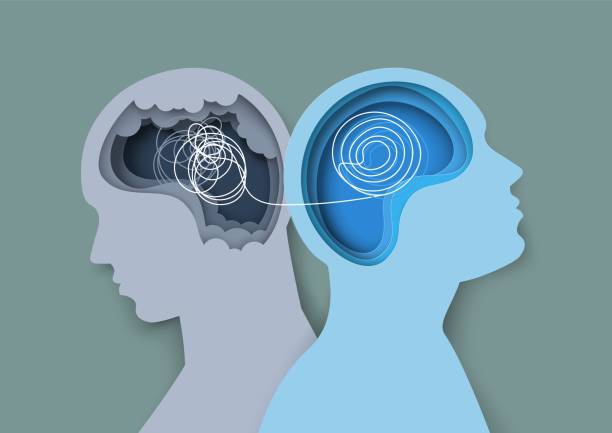The stages of cognitive development, as proposed by psychologist Jean Piaget, are a fundamental concept in understanding how children’s thinking and reasoning abilities evolve from infancy through adolescence.
Piaget’s theory of cognitive development suggests that children move through four distinct stages, each characterized by specific cognitive abilities and limitations.
This comprehensive exploration of cognitive development will delve into each stage, discuss the implications of Piaget’s theory, and examine modern perspectives on this crucial aspect of human development.

Jean Piaget’s 4 Stages of Cognitive Development
Jean Piaget, a renowned Swiss psychologist, developed a theory that revolutionized our understanding of child development. He proposed that cognitive development occurs in four major stages, with each stage building upon the previous one.
Piaget believed that children construct their understanding of the world through their experiences and interactions with their environment.
Piaget’s theory suggests that all children go through these stages in the same order, although the timing may vary.
Each stage is qualitatively different from the others, representing distinct ways of thinking and interacting with the world. Let’s examine each of these stages in detail.
1. Sensorimotor Stage (Birth to 2 years)
The sensorimotor stage is the first of Piaget’s stages of development. During this period, infants learn about the world through their senses and motor actions. Piaget believed that cognitive development at this stage is primarily based on physical interactions and experiences.
Key characteristics of the sensorimotor stage include:
1. Reflexive behavior: Newborns initially rely on innate reflexes to interact with their environment. 2. Primary circular reactions: Infants begin to repeat actions that produce interesting results. 3. Secondary circular reactions: Babies start to interact more purposefully with objects in their environment. 4. Coordination of secondary circular reactions: Infants combine different actions to achieve desired outcomes. 5. Tertiary circular reactions: Toddlers experiment with new behaviors to see what happens. 6. Object permanence: This is perhaps the most significant achievement of the sensorimotor stage. It’s the understanding that objects continue to exist even when they can’t be seen. Piaget suggested that this concept develops gradually, with full object permanence typically achieved around 18-24 months.
During this stage, infants progress from relying solely on reflexes to developing more complex schemas (mental representations) of the world around them. They learn to differentiate themselves from their environment and begin to understand cause-and-effect relationships.

2. Preoperational Stage (2 to 7 years)
In the preoperational stage, children begin to use symbols and language to represent objects. This stage marks a significant leap in cognitive abilities, as children can now think about things beyond their immediate sensory experience. However, their thinking is still characterized by several limitations.
Key features of the preoperational stage include:

While children in this stage make significant cognitive advancements, their thinking is still quite different from that of adults. They struggle with logic and taking the viewpoint of others, which Piaget saw as key limitations of this stage.
3. Concrete Operational Stage (7 to 11 years)
The concrete operational stage marks a significant shift in cognitive abilities. Children at this stage can think logically about concrete objects and situations. This stage is characterized by a decrease in egocentrism and an increase in the ability to use logical operations.
Key features of the concrete operational stage include:
1. Conservation: Children understand that quantity remains the same despite changes in appearance. They can conserve number, length, liquid volume, mass, weight, and area. 2. Classification: The ability to group objects based on their characteristics and to understand class inclusion (e.g., understanding that all squares are rectangles, but not all rectangles are squares). 3. Seriation: The capacity to arrange objects in order based on a particular characteristic, such as size or weight. 4. Reversibility: Children can mentally reverse actions or operations. For example, they understand that 2 + 3 = 5 and 5 – 3 = 2. 5. Decentration: The ability to consider multiple aspects of a problem simultaneously. 6. Transitivity: Understanding the relationship between related objects. For instance, if A is taller than B, and B is taller than C, then A must be taller than C. 7. Elimination of egocentrism: Children can now take others’ perspectives into account.
While children in this stage can think logically, their thinking is still tied to concrete situations. They struggle with abstract concepts and hypothetical scenarios, which sets the stage for the final phase of cognitive development.
4. Formal Operational Stage (11 years and older)
The formal operational stage is the final stage of cognitive development in Piaget’s theory. Adolescents and adults in this stage can think abstractly, reason hypothetically, and systematically solve problems. This stage represents the height of cognitive development, where individuals can engage in complex moral reasoning and ponder abstract concepts like justice and love.
Key characteristics of the formal operational stage include:

Piaget believed that once individuals reach this stage, their basic cognitive structures are fully developed.
However, he acknowledged that the content and depth of knowledge continue to increase throughout life.
The Importance of Piaget’s Theory of Cognitive Development
Piaget’s theory has had a profound impact on our understanding of child development and education.
While some aspects have been challenged or refined by later research, the core idea that children’s thinking develops in stages remains influential.
Understanding these stages helps parents, educators, and psychologists in several ways:

It’s important to note that while Piaget believed these stages occur in a fixed order, the exact timing can vary among children.
Some children may reach stages earlier or later than Piaget suggested. Furthermore, within each stage, there can be significant individual differences in how children think and reason.
Beyond Piaget: Modern Views on Cognitive Development
While Piaget’s theory remains foundational, modern research has expanded and refined our understanding of cognitive development.
Some key points in contemporary cognitive development research include:
1. Development is more continuous than stage-like 2. Children show competence earlier than Piaget thought 3. Cultural and social factors play a significant role 4. Information processing theory explains mental processes 5. Theory of mind development is crucial 6. Executive functions are key aspects of cognition 7. Brain plasticity shapes development 8. Individual differences in developmental trajectories are recognized 9. Multiple types of intelligence exist 10. Emotional and social cognition interact with cognitive development
These modern perspectives don’t negate Piaget’s theory but rather build upon and refine it.
They provide a more nuanced and comprehensive understanding of cognitive development, acknowledging its complexity and the many factors that influence it.
Practical Applications of Cognitive Development Theory
Understanding cognitive development has numerous practical applications across various fields:
1. Education: Tailoring teaching methods to students’ cognitive abilities at different ages. 2. Parenting: Providing age-appropriate support and managing expectations. 3. Child Psychology: Assessing cognitive function, diagnosing delays, and designing interventions. 4. Pediatrics: Monitoring developmental milestones and identifying potential issues. 5. Product Design: Creating age-appropriate, stimulating toys and media. 6. Legal System: Informing decisions about children’s capacities in legal contexts. 7. User Experience Design: Developing intuitive interfaces for children’s digital products. 8. Marketing: Crafting appropriate messages for children and understanding their limitations in evaluating advertising.
Piaget’s cognitive development theory provides a valuable framework for understanding children’s evolving thought processes.
By applying this knowledge and incorporating modern research, we can better support children’s cognitive growth and create nurturing environments.
This understanding helps us appreciate the journey of the human mind and emphasizes the importance of providing appropriate stimulation and challenges at each developmental stage.









